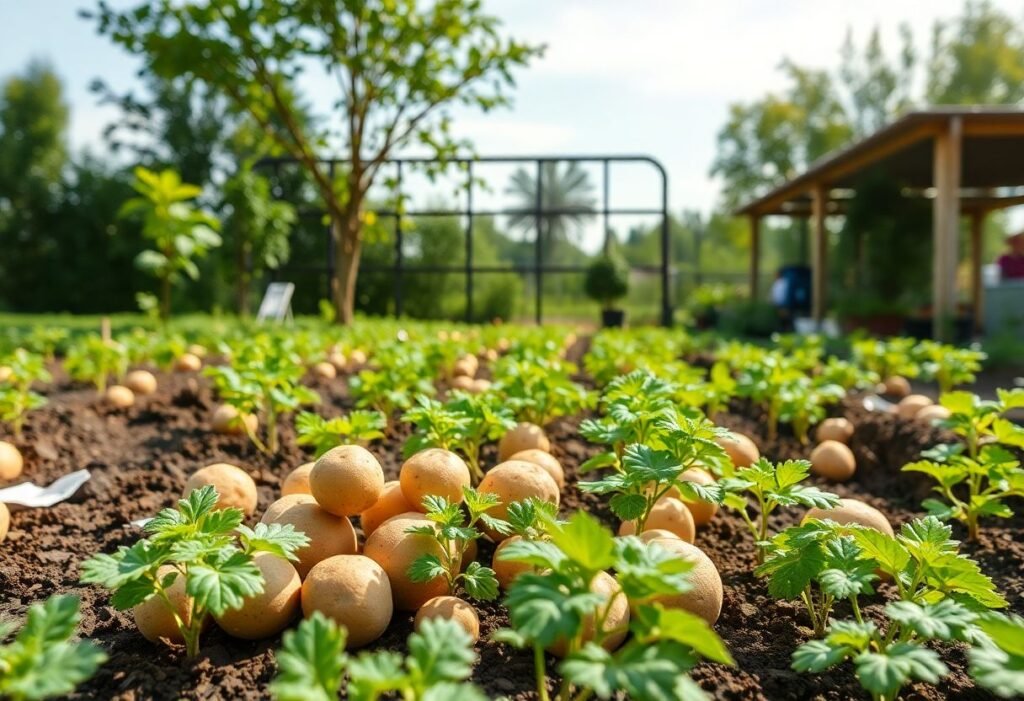What Nutrients Do Potatoes Need?
Before diving into potato fertilizers, it’s essential to understand the nutrients crucial for this vegetable. Potatoes primarily require nitrogen, phosphorus, and potassium. Nitrogen aids in leafy growth, phosphorus promotes root development, and potassium enhances the overall health of the plant. Therefore, when selecting a potato fertilizer, ensure it contains these elements in the appropriate proportions.
How to Use Organic Fertilizers for Potatoes?
Before settling on potato fertilizers, consider using organic options. Compost, manure, and other natural fertilizers not only enrich the soil but also improve its structure. By employing organic fertilizers, you can ensure that your potatoes grow healthily and naturally. Also, checking soil pH can significantly impact your fertilization strategy, making it wise to assess it before starting.
What Types of Potato Fertilizers Are Available?
There are various types of potato fertilizers on the market: granular, liquid, and organic. The choice of fertilizer depends on personal preferences and planting conditions. Granular fertilizers are easy to use and provide long-lasting results, while liquid fertilizers are quickly absorbed by plants, which can be beneficial during periods of rapid growth.
What Are Optimal Fertilizer Dosages?
Establishing the right fertilizer dosages is crucial. Over-fertilization may harm your plants, while insufficient fertilization can lead to poor growth. Typically, 40-60 grams of fertilizer per square meter is recommended, but it’s wise to adjust this quantity based on soil quality and the growth phase of your potatoes.
How to Identify Nutrient Deficiencies?
Understanding the symptoms of nutrient deficiencies is an essential aspect of effective gardening. For instance, yellowing leaves may indicate a nitrogen deficiency, while red spots on leaves may suggest a phosphorus deficiency. Keep a keen eye on your plants and respond to their needs to achieve the best results.
What Mistakes to Avoid When Fertilizing Potatoes?
There’s nothing worse than making simple mistakes that can be detrimental to your potatoes. Avoid applying fertilizers right before a rainstorm, as this can result in essential nutrients being washed away. Additionally, don’t over-fertilize, as this can lead to significant complications too.
Conclusion
It’s time to take action! Choosing the right potato fertilizer and applying it correctly is the key to successful gardening. Don’t hesitate to experiment, but always keep in mind your plants’ needs. Take control of your garden’s success—enjoy delicious and nutritious potatoes straight from your backyard!
Disclaimer
This article is for informational purposes only and does not replace professional agronomy advice.

















